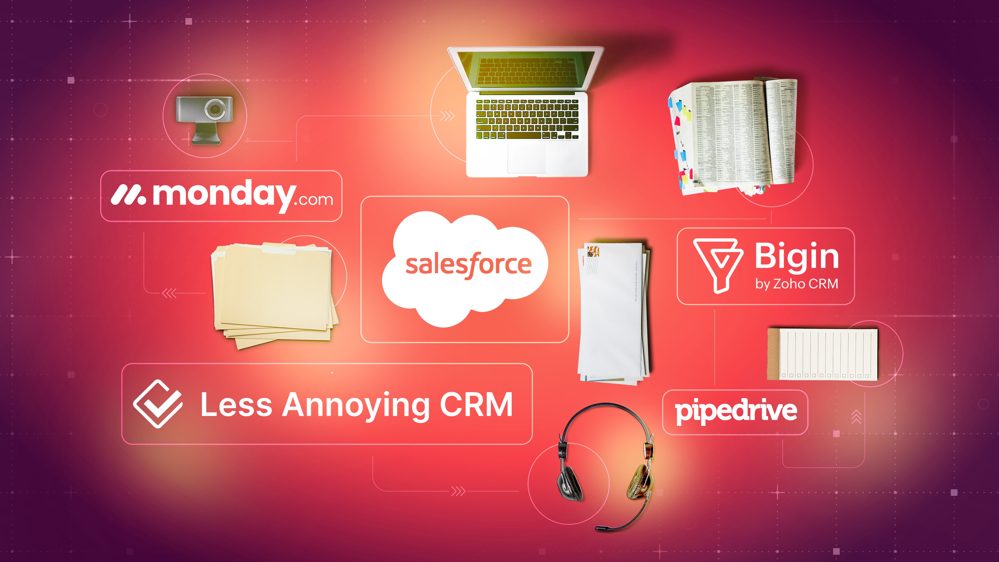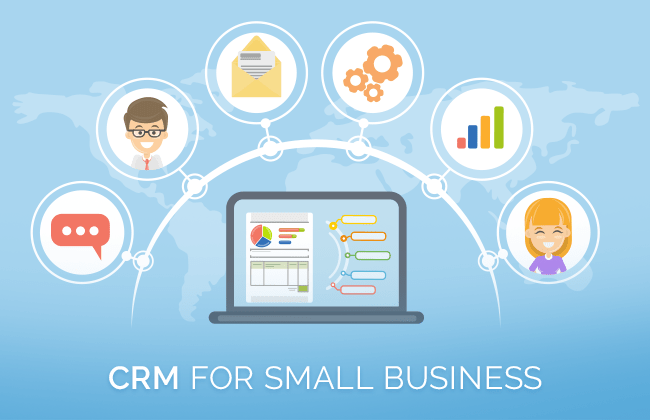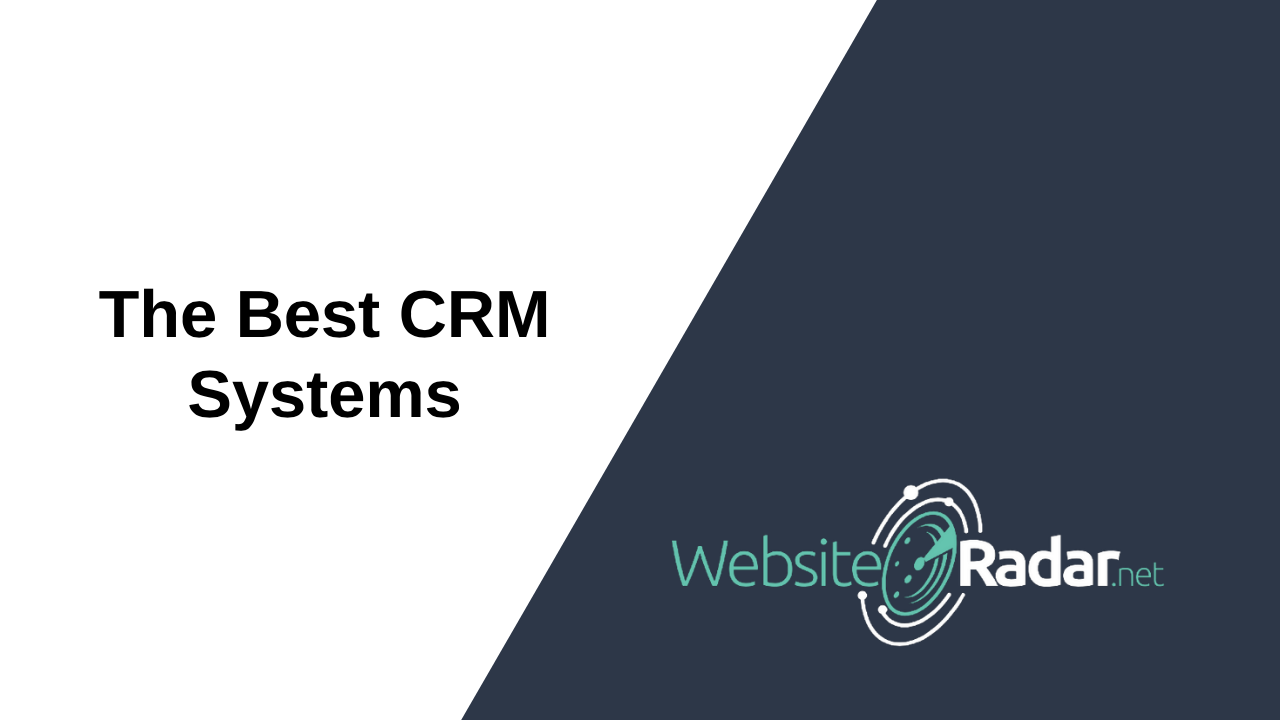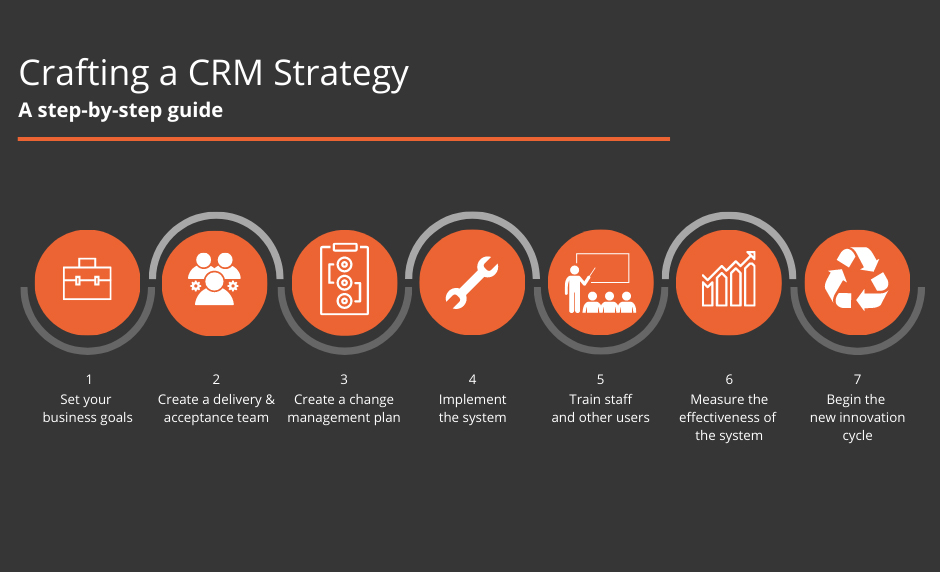Small Business CRM Features in 2025: A Comprehensive Guide to Staying Ahead

Small Business CRM Features in 2025: Navigating the Future of Customer Relationships
The world of customer relationship management (CRM) is constantly evolving, and small businesses need to stay ahead of the curve to thrive. In 2025, the landscape will be vastly different from today, with new technologies and features emerging to transform how businesses interact with their customers. This guide provides a comprehensive overview of the essential CRM features that small businesses should consider in 2025 to optimize their operations, boost customer satisfaction, and achieve sustainable growth. We’ll delve into the core functionalities, explore emerging trends, and offer practical advice on selecting and implementing the right CRM solution for your specific needs.
The Foundation: Core CRM Features for Small Businesses
Before we dive into the future, let’s revisit the fundamental CRM features that remain crucial for small businesses. These core functionalities form the bedrock of effective customer relationship management and are essential for any business looking to succeed.
Contact Management
At the heart of any CRM system is contact management. This feature allows you to store and organize customer data, including names, contact information, demographics, and interaction history. In 2025, expect even more sophisticated contact management capabilities, such as:
- Advanced Segmentation: Grouping customers based on various criteria (purchase history, behavior, demographics) for targeted marketing and personalized experiences.
- Data Enrichment: Automatically supplementing customer data with publicly available information, providing a more complete view of your customers.
- Unified Profiles: Consolidating data from multiple sources (website, social media, email) into a single, comprehensive customer profile.
Lead Management
Lead management involves tracking and nurturing potential customers through the sales pipeline. A robust CRM system should provide features for:
- Lead Capture: Capturing leads from various sources, such as website forms, landing pages, and social media.
- Lead Scoring: Prioritizing leads based on their likelihood of converting, allowing sales teams to focus on the most promising prospects.
- Lead Nurturing: Automating email campaigns and other interactions to keep leads engaged and move them through the sales funnel.
Sales Automation
Sales automation streamlines the sales process, freeing up sales representatives to focus on closing deals. Key features include:
- Workflow Automation: Automating repetitive tasks, such as sending follow-up emails and updating contact information.
- Sales Forecasting: Predicting future sales based on historical data and current pipeline activity.
- Quote Management: Creating and managing sales quotes efficiently.
Marketing Automation
Marketing automation helps businesses engage with customers and prospects through targeted campaigns. Essential features include:
- Email Marketing: Creating and sending email campaigns to segmented audiences.
- Social Media Integration: Scheduling and managing social media posts from within the CRM.
- Campaign Tracking: Measuring the performance of marketing campaigns and identifying areas for improvement.
Customer Service and Support
Providing excellent customer service is crucial for retaining customers and building brand loyalty. CRM systems with customer service features enable businesses to:
- Case Management: Tracking and resolving customer issues efficiently.
- Knowledge Base: Providing customers with self-service resources, such as FAQs and tutorials.
- Live Chat Integration: Offering real-time support through live chat functionality.
Emerging CRM Trends and Features in 2025
The following trends and features are poised to reshape the CRM landscape in 2025, offering small businesses new opportunities to enhance customer relationships and drive growth.
Artificial Intelligence (AI) and Machine Learning (ML)
AI and ML are already transforming CRM, and their impact will only intensify in 2025. Expect to see:
- Predictive Analytics: AI-powered algorithms that predict customer behavior, identify potential churn, and recommend personalized offers.
- Chatbots and Virtual Assistants: AI-powered chatbots that handle customer inquiries, provide support, and automate routine tasks.
- Automated Data Analysis: AI tools that analyze large datasets to identify trends, insights, and opportunities.
Hyper-Personalization
Customers increasingly expect personalized experiences. CRM systems in 2025 will enable businesses to deliver:
- Personalized Content: Tailoring website content, email communications, and other interactions to individual customer preferences.
- Behavioral Targeting: Delivering targeted ads and offers based on customer behavior and interests.
- Dynamic Pricing: Adjusting prices based on customer data and market conditions.
Omnichannel Customer Experience
Customers interact with businesses across multiple channels (website, email, social media, phone). In 2025, CRM systems will focus on providing a seamless omnichannel experience:
- Unified Customer View: Consolidating customer data from all channels into a single view.
- Channel Integration: Seamlessly integrating CRM with various communication channels.
- Consistent Messaging: Ensuring consistent messaging and branding across all channels.
Mobile CRM
Mobile CRM solutions will become even more crucial for businesses on the go. Expect to see:
- Enhanced Mobile Apps: Feature-rich mobile apps that provide access to all CRM functionalities on smartphones and tablets.
- Offline Access: The ability to access and update data even without an internet connection.
- Location-Based Services: Integrating CRM with GPS and other location-based services to provide contextually relevant information.
Data Privacy and Security
With increasing data privacy regulations, security will be paramount. CRM systems in 2025 will prioritize:
- Robust Security Measures: Implementing advanced security protocols to protect customer data from cyber threats.
- Compliance with Regulations: Ensuring compliance with data privacy regulations, such as GDPR and CCPA.
- Data Encryption: Encrypting sensitive data to protect it from unauthorized access.
Integration with Emerging Technologies
CRM systems will need to integrate with emerging technologies to provide businesses with a competitive edge:
- Internet of Things (IoT): Integrating CRM with IoT devices to collect data and personalize customer experiences.
- Virtual Reality (VR) and Augmented Reality (AR): Using VR and AR for customer training, product demonstrations, and immersive experiences.
- Blockchain: Leveraging blockchain technology for secure data storage and transparent transactions.
Choosing the Right CRM for Your Small Business in 2025
Selecting the right CRM system is a critical decision for any small business. Consider these factors when evaluating CRM solutions:
Business Needs and Goals
Define your specific business needs and goals. What are your primary objectives for implementing a CRM system? Do you want to improve sales, enhance customer service, or streamline marketing efforts? Identify the features and functionalities that are most important to your business.
Scalability
Choose a CRM system that can scale with your business. Consider your current size and projected growth. The CRM should be able to accommodate an increasing number of users, data, and transactions.
Ease of Use
Select a CRM system that is easy to use and navigate. The system should have a user-friendly interface and intuitive features. Consider the learning curve for your employees and the availability of training resources.
Integration
Ensure that the CRM system integrates with your existing tools and systems, such as your website, email marketing platform, and accounting software. Integration streamlines data flow and eliminates the need for manual data entry.
Customization
Look for a CRM system that offers customization options to tailor the system to your specific needs. The system should allow you to add custom fields, create custom reports, and configure workflows.
Mobile Accessibility
Choose a CRM system that provides mobile access. This allows your employees to access customer data and manage their tasks from anywhere, anytime. A mobile-friendly CRM boosts productivity and responsiveness.
Pricing and Budget
Consider the pricing and budget of the CRM system. Compare the different pricing plans and features offered by various vendors. Choose a system that provides the best value for your money.
Vendor Reputation and Support
Research the vendor’s reputation and customer support. Read reviews and testimonials from other users. Ensure that the vendor provides excellent customer support and training resources.
Implementing Your CRM System: Best Practices
Once you’ve chosen a CRM system, successful implementation is key to realizing its full potential. Follow these best practices:
Plan Your Implementation
Develop a detailed implementation plan that outlines the steps involved, the timeline, and the resources required. Involve key stakeholders in the planning process.
Data Migration
Migrate your existing customer data to the new CRM system. Ensure that the data is accurate and complete. Cleanse and deduplicate your data before migrating it.
Training
Provide comprehensive training to your employees on how to use the CRM system. Offer training sessions, user manuals, and online resources.
Customization
Customize the CRM system to meet your specific business needs. Configure the system to match your workflows, data fields, and reporting requirements.
Integration
Integrate the CRM system with your other tools and systems. This will streamline data flow and improve efficiency.
Testing
Test the CRM system thoroughly before going live. Ensure that all features and functionalities are working correctly.
Ongoing Support and Optimization
Provide ongoing support to your employees and monitor the system’s performance. Continuously optimize the system to meet your evolving needs.
The Future is Now: Preparing for CRM in 2025
The CRM landscape is dynamic, and small businesses must be proactive to stay ahead. The features and trends discussed above will shape the future of customer relationships. By understanding these developments and embracing the right CRM solutions, small businesses can:
- Enhance Customer Experiences: Deliver personalized interactions and build stronger customer relationships.
- Improve Sales Performance: Streamline the sales process and close more deals.
- Boost Marketing ROI: Run targeted marketing campaigns and generate more leads.
- Increase Efficiency and Productivity: Automate tasks and free up employees to focus on higher-value activities.
- Drive Sustainable Growth: Build a loyal customer base and achieve long-term success.
The key to success in 2025 is not just adopting a CRM system but choosing the right one and using it effectively. By carefully considering your business needs, evaluating the available options, and implementing the system strategically, you can harness the power of CRM to transform your small business and achieve remarkable results. Don’t wait; the future of CRM is here, and the time to prepare is now.
Further Considerations for Small Business CRM in 2025
Beyond the core features and trends, small businesses should also consider these aspects to maximize the effectiveness of their CRM strategy:
The Role of Data Analytics
Data analytics will be a critical component of CRM in 2025. Small businesses should invest in tools and training to analyze customer data and gain actionable insights. This includes:
- Customer Segmentation: Understanding customer behavior to create targeted marketing campaigns.
- Churn Prediction: Identifying customers at risk of leaving and proactively addressing their needs.
- Sales Forecasting: Predicting future sales trends to make informed business decisions.
Integration with Social Media
Social media will continue to play a significant role in customer interactions. CRM systems should seamlessly integrate with social media platforms to:
- Monitor Brand Mentions: Track what customers are saying about your brand.
- Engage with Customers: Respond to comments, messages, and inquiries in real-time.
- Run Social Media Campaigns: Promote products and services through targeted social media campaigns.
The Importance of User Training and Adoption
The success of any CRM implementation depends on user adoption. Small businesses should prioritize:
- Comprehensive Training: Providing employees with the skills and knowledge they need to use the CRM effectively.
- Ongoing Support: Offering continuous support to address any questions or issues.
- Encouraging Adoption: Creating a culture of CRM usage and emphasizing its benefits.
Security and Compliance
Data security and compliance with regulations like GDPR and CCPA will be paramount. Small businesses must:
- Choose Secure CRM Providers: Selecting vendors with robust security measures and a strong track record.
- Implement Data Encryption: Protecting sensitive customer data through encryption.
- Comply with Data Privacy Regulations: Ensuring compliance with all applicable data privacy laws.
The Future of CRM: Beyond 2025
Looking beyond 2025, the evolution of CRM will continue. Expect to see:
- Increased Automation: Further automation of tasks, including sales, marketing, and customer service.
- Greater Personalization: More sophisticated personalization capabilities, including personalized recommendations and dynamic content.
- Integration with Metaverse: Integration with virtual reality and augmented reality platforms to create immersive customer experiences.
Small businesses that embrace these trends and adapt to the changing landscape will be well-positioned for success in the years to come. The CRM of the future will be more intelligent, more personalized, and more integrated than ever before.
By staying informed, investing in the right technologies, and fostering a customer-centric culture, small businesses can leverage CRM to build stronger customer relationships, drive growth, and achieve their business goals.





